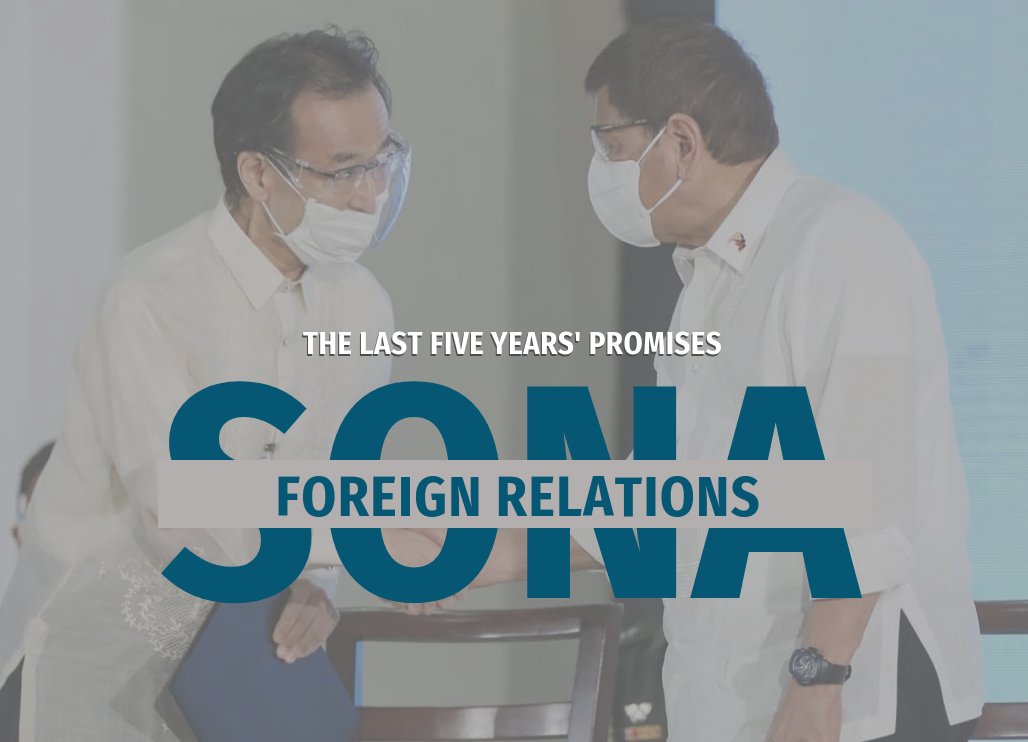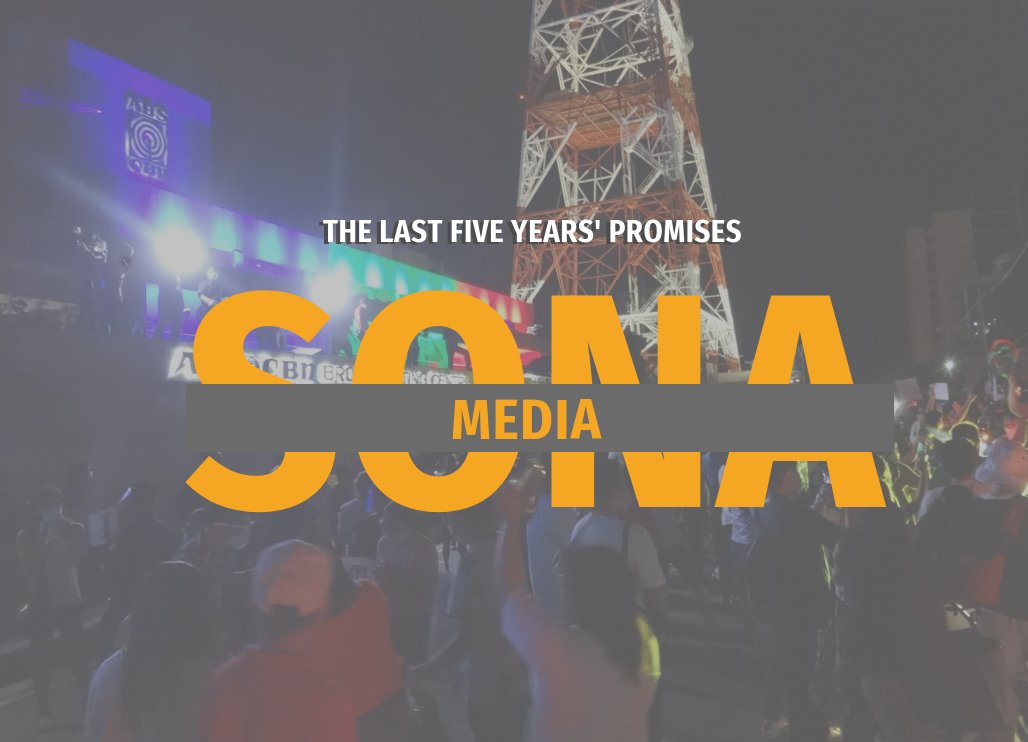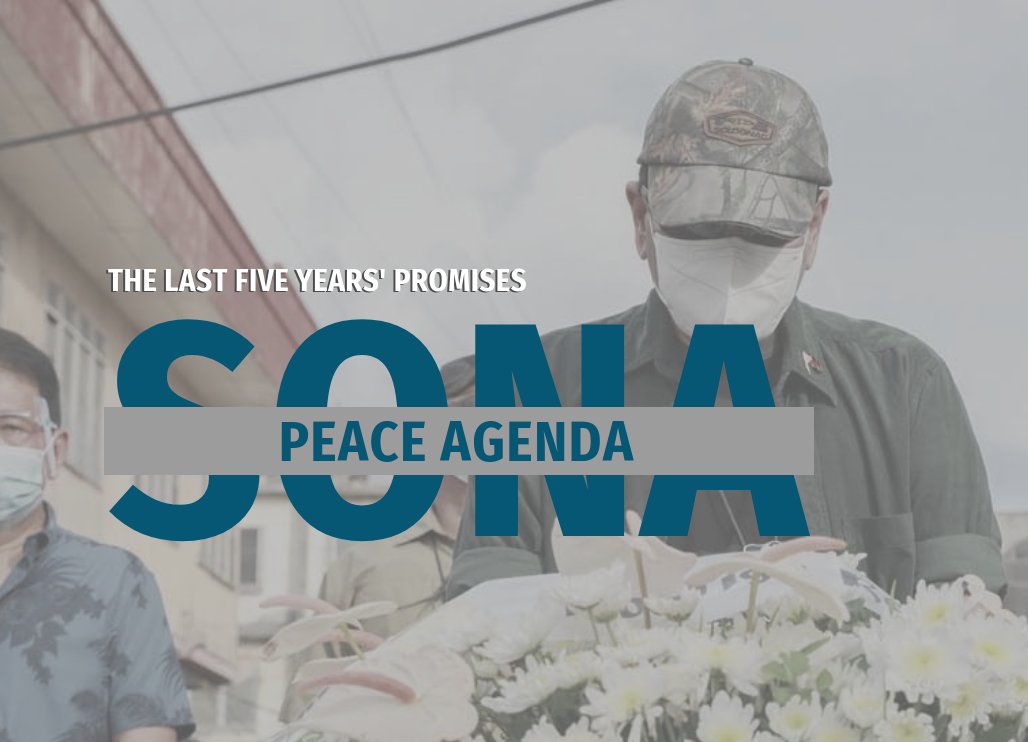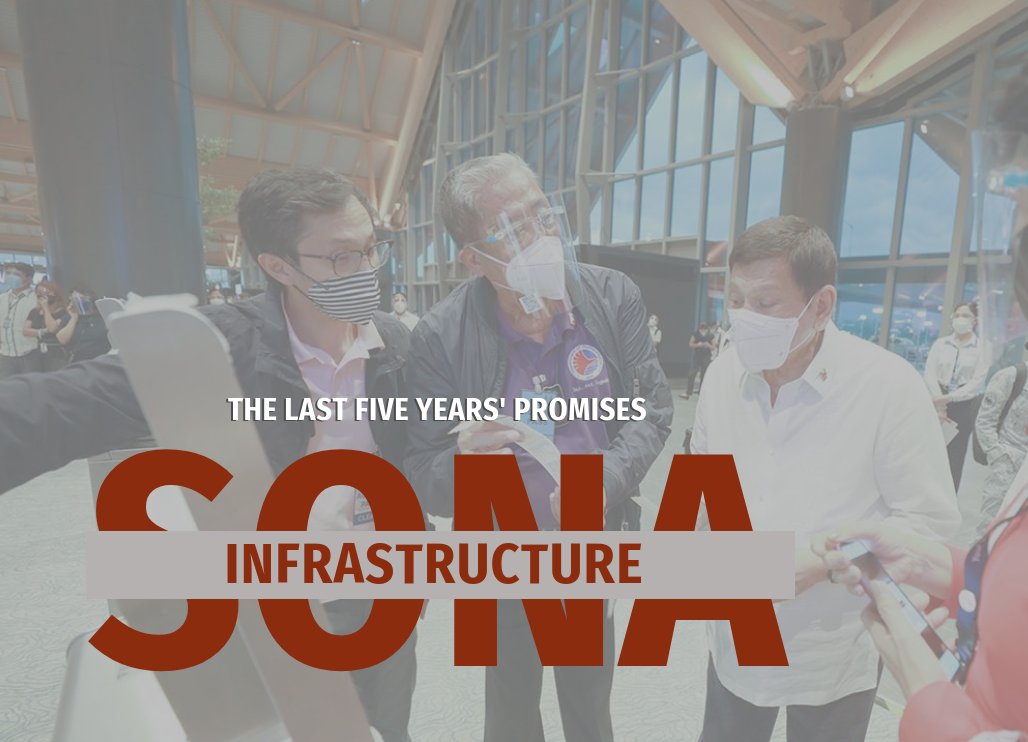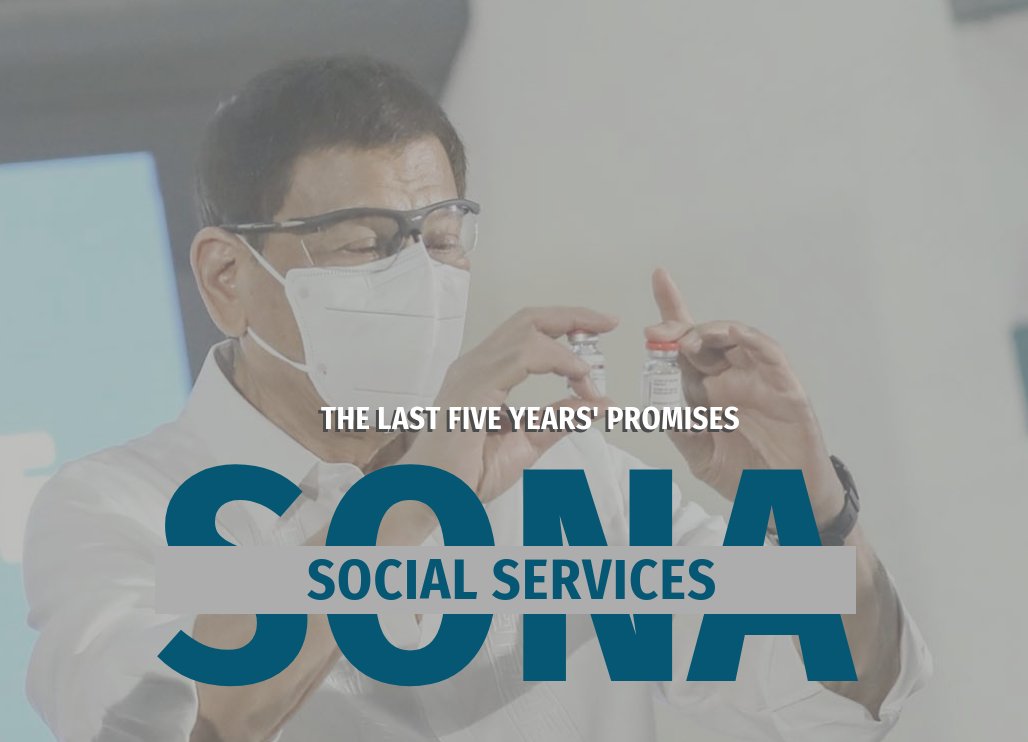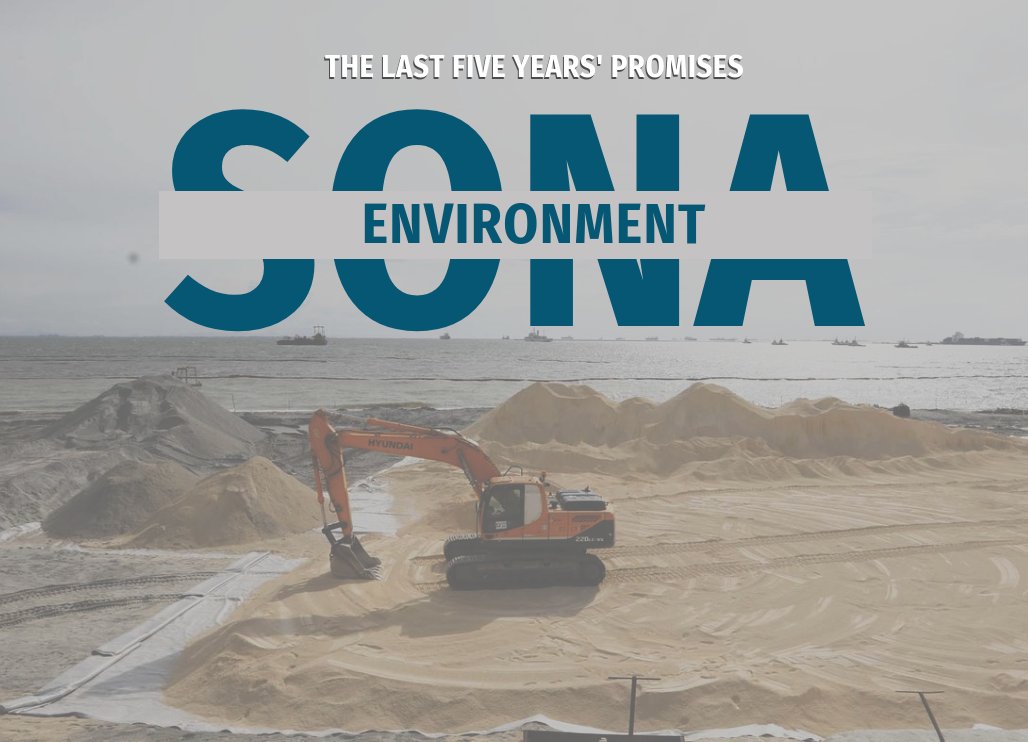In his penultimate State of the Nation Address (SONA) last year, President Rodrigo Duterte circled back to his promise of pursuing an independent foreign policy, stressing that his government would work with any nation “willing to engage us on the basis of equality and mutual respect.”
But with less than a year left before his exit from Malacañang, Duterte appears to be struggling to apply this mantra with his “BFF (best friend forever)” China, especially on the maritime dispute in the West Philippine Sea (WPS).
Despite the close bilateral relations, the East Asian giant continues to snub the 2016 arbitral ruling that nullified its expansive claims over the South China Sea, including the WPS, under its so-called nine-dash line.
In a controversial remark last May, Duterte adopted China’s position that the landmark arbitral ruling was nothing more than a “scrap of paper.” (See VERA FILES FACT CHECK: After asserting arbitral win in UN, Duterte now calls it ‘just a piece of paper’)
Meanwhile, Duterte’s promise to seek compensation for the sinking of an anchored Philippine fishing boat by a Chinese vessel — which almost killed 22 Filipino fishermen — within Philippine waters in July 2019 remains pending. (See VERA FILES FACT SHEET: The evolving statements on the Recto Bank allision: a visual timeline)
The president made good on his commitment to work with other countries “within and beyond” the Association of Southeast Asian Nations (ASEAN), especially in the context of the coronavirus disease 2019 (COVID-19) pandemic. But he continues to send mixed signals to the United States (U.S.), a longtime military ally, on the future of the Visiting Forces Agreement (VFA). (See VERA FILES FACT CHECK: Duterte gov’t blows hot and cold on defense ‘arrangement’ with US)
See how Duterte fared in his promises on foreign policy:
PROMISE: Boost cooperation with nations on peace, progress
|
| “Within ASEAN and beyond, the Philippines will continue to work with partners to address global perils and ramp up cooperation to secure for our peoples, greater peace, progress and prosperity.” (SONA 2020) |
|
Duterte’s fifth year in office was marked by his debut appearance at the United Nations General Assembly (UNGA) during its 75th session in September 2020. In his speech, the president called for a “coordinated international” effort to deal with the COVID-19 pandemic. He also stressed the need to address climate change, the issue of terrorism, and the ongoing tensions in the South China Sea. Since the president’s 2020 SONA, his administration has engaged with countries in Southeast Asia and beyond on various areas of cooperation, including defense and labor. In November last year, the U.S. turned over earlier committed weapons, including precision-guided missiles worth US$18 million, in support of the Philippines’ counterterrorism efforts. The government has also renewed its commitment to work together on defense and security with countries including Australia, France, Israel, Indonesia, and South Korea. However, more than a year after terminating the VFA, Duterte has blown hot and cold in pursuing another defense arrangement with the U.S. (See VERA FILES FACT SHEET: The Visiting Forces Agreement, explained) In a speech in December 2020, Duterte said that if the U.S. failed to deliver even a minimum of 20 million COVID-19 vaccines, “they (Americans) better get out.” In another speech last February, he said that if Washington wanted the VFA “done,” then “they [would] have to pay.” But four months later in June, Duterte suspended for another six months the abrogation of the defense deal for the third time. (See VERA FILES FACT CHECK: Duterte changes tune on terminating PH-US VFA) That same month, the Philippines discussed with Saudi Arabia the possible signing of a memorandum of understanding on labor. The Middle Eastern country is the “most preferred destination” of overseas Filipino workers (OFWs), based on 2019 data from the Philippine Statistics Authority. Amid the ongoing COVID-19 pandemic, the Philippines benefited from financial aid and other donations provided by neighbors and allies. This included the donation of 1 million doses of CoronaVac vaccines, delivered in two batches in February and March, by China, and 1.1 million doses of AstraZeneca from Japan, which arrived early this month. Most recently, the Philippines received 3.2 million Janssen jabs, delivered in two batches on July 16 and 17, from the U.S. through the COVAX Facility, a global collaboration co-led by the World Health Organization to ensure equitable access to COVID-19 vaccines. The country has also gotten more than 2.47 million doses of Pfizer-BioNTech vaccines, and another 4.58 million doses of AstraZeneca from COVAX, which is funded by governments and private entities worldwide. |
PROMISE: Assert rights over West Philippine Sea |
|
“…unless we are prepared to go to war, I would suggest that we better just call off and treat this (the South China Sea dispute) … with diplomatic endeavors.” (SONA 2020) “…I will [protect our territorial waters and natural resources] in a peaceful way…Let me assure you that national honor and territorial integrity shall be foremost in our mind, and when we may take the next steps in our smoldering controversy over the lines of our arbitral ruling, the West Philippine Sea is ours. There [are] no ifs and buts.” (SONA 2019) “Our improved relationship with China, however, does not mean that we will waver in our commitment to defend our interests in the West Philippine Sea.” (SONA 2018) |
|
Months after his 2020 SONA, Duterte asserted in strong terms the country’s arbitral win before the international community during the 75th UNGA, and again at the 37th ASEAN Summit. But come May the following year, the president was singing a different tune. As tensions in the region flared up with the detection of more than 200 Chinese vessels in Philippine-claimed areas last March, Duterte drew flak for dismissing his campaign promise to “ride a jet ski” to the WPS to assert the country’s claims. (See VERA FILES FACT CHECK: Duterte claims he ‘never mentioned’ PH-China maritime row in 2016 campaign. He did.) He was likewise criticized for downplaying the arbitral award as a “mere piece of paper” that he would “throw into the wastebasket,” echoing China’s position, in a televised address on May 5. The Department of Foreign Affairs (DFA) clarified two days later that the president’s remarks in his UN speech was the “supreme expression of foreign policy” on the WPS. On May 13, Duterte “affirm[ed]” his belief in the arbitral award “in its entirety” but said the problem lies in its enforcement. During the fifth anniversary of the country’s arbitral win last July 12, Malacañang said the Duterte government had “done all [it] could” to “give life” to the award, “given the absence of an enforcement mechanism under international law.” China’s recent incursions in Philippine waters drew conflicting responses from the president’s alter egos. While Defense Secretary Delfin Lorenzana and Foreign Affairs Secretary Teodoro Locsin Jr. strongly demanded that Chinese vessels leave Philippine waters immediately, Presidential Spokesperson Harry Roque said the issue had been “blown out of proportion.” Roque went further to say that Julian Felipe Reef (around 175 nautical miles off the coast of Palawan), where the Chinese vessels were initially spotted, was not a part of the country’s exclusive economic zone, contradicting assertions of defense and foreign affairs officials. The president later on directed his Cabinet, save for Roque, to “refrain” from discussing the issue “with anybody.” Roque later clarified that Locsin was also exempted from the gag order. Since the start of Duterte’s term, the government had filed 132 diplomatic protests against Beijing over the WPS dispute as of July 13, according to DFA’s media and public affairs division. More than 60 of the total were filed within the last three months alone. With the Philippines’ term as ASEAN country coordinator for China nearing its end, Locsin said the government is working on a “much shorter and more digestible yet comprehensive” draft of the proposed Code of Conduct on the South China Sea for second reading. However, critics have warned that China will not sign such a document until it is finished with its island-building activities in contentious areas. On the proposed joint oil and gas exploration between the two countries that could include disputed areas in the WPS, Locsin said in an ANC interview in February that negotiations were “moving forward,” but refused to give a timetable for when the talks would be completed. |
PROMISE: Exact liability, compensation in Recto Bank allision case |
| “They (China) wanted to talk, tapos ayaw dito (Philippines). And so, ‘So sige, we will investigate and you (China) investigate, and when you are ready, we shall meet and compare notes, and let us determine who pays for what damage.’” (SONA 2019) |
|
Two years after the ramming and sinking of F/B Gem-Ver1 in Recto Bank by a Chinese vessel in June 2019, the issue of reparations has yet to be settled. In a CNN Philippines interview on Sept. 17, 2020, Justice Secretary Menardo Guevarra said local prosecutors had estimated the total civil damages to be “a little more than P12 million,” covering repairs of the rammed fishing boat, loss of income over six months, and moral damages. This came after a “miscommunication” with DFA on which agency should take the lead in determining the damages due. On June 7, the Philippine panel, led by the Department of Justice (DOJ), met with the Chinese side and “reiterated” the claim of the boat owner and 22-member crew. Justice Undersecretary Adrian Sugay said the panel pointed out that the Chinese vessel “failed to extend assistance to persons who were clearly distressed at sea … in violation of relevant international conventions and customary international maritime law.” Sugay said the Chinese side would offer a counterproposal and that further meetings “[would] be dependent” on its “acceptability.” On June 15, Inquirer.net reported that some members of the Gem-Ver1 crew had been “contacted by a lawyer, through the boat owner” and were “made to sign documents which indicated how much they would receive.” VERA Files Fact Check has followed up with Sugay’s office on the status of the counteroffer of the Chinese side but has yet to receive a response as of publication. |
Sources
Presidential Communications Operations Office, 5th State of the Nation Address of Rodrigo Roa Duterte President of the Philippines to the Congress of the Philippines (Transcript), July 27, 2020
On boosting cooperation with other nations
- Presidential Communications Operations Office:Statement of President Rodrigo Roa Duterte during the General Debate of the 75th Session of the United Nations General Assembly, Sept. 22, 2020
- Presidential Communications Operations Office, Duterte Administration Year-End Report 2020: Foreign Policy, Dec. 30, 2020
- Department of Foreign Affairs, Secretary Locsin Meets U.S. National Security Advisor O’Brien for Handover of $18M Defense Materials, Nov. 23, 2020
- Department of Foreign Affairs:
- PH, Australia commit to vigorous defense and security cooperation at 5th PH-Australia Strategic Dialogue, Dec. 1, 2020
- SFA Locsin, new French Ambassador Boccoz commit to deepen ties in fields of defense, economic, health cooperation, Feb. 16, 2021
- PH and Israel hold 11th joint commission meeting virtually, discussed ongoing cooperation on defense, agriculture, among others, March 2, 2021
- PH strengthens bilateral relations with Indonesia, Brunei Darussalam; pushes trade and investment, defense and logistics cooperation amid pandemic, March 16, 2021
- Philippines and ROK foreign ministers talk defense cooperation, COVID-19 collaboration and regional issues, May 26, 2021
- Presidential Communications Operations Office, Meeting of President Rodrigo Roa Duterte with Emerging Infectious Diseases Experts on Coronavirus Disease 2019 (COVID-19) — Part II, Dec. 26, 2020
- Presidential Communications Operations Office, Speech of President Rodrigo Roa Duterte during the Inspection of Newly Delivered Air Assets and Talk to to Troops, Feb. 12, 2021
- Department of Foreign Affairs official Twitter account, “SFA @teddybolocsin announces President DUterte’s decision…,” June 14, 2021
- Presidential Communications Operations Office, PH, Saudi Arabia agree on heightened partnership on labor reforms, migrant rights, June 21, 2021
- Philippine Statistics Authority, Total Number of OFWs Estimated at 2.2 Million, June 4, 2020
- Philippine Humanitarian Assistance Registry: List of Donations: COVID-19, Accessed July 15, 2021
- USAID, U.S. provides Php170 million to support COVID-19 vaccine deployment in the Philippines, April 15, 2021
- ABS-CBN News, Philippines: COVID-19 Vaccine Tracker, Accessed July 19, 2021
- Department of Health, PH receives 400k additional donated CoronaVac doses, March 24, 2021
- Philippine Information Agency, PRRD thanks Japan for donation of 1.1-M AstraZeneca vaccine doses, July 11, 2021
- Department of Health, PH receives additional vaccines through COVAX Facility, May 10, 2021
- Department of Health, Philippines receives additional 2.28 million COVID-19 vaccines through the COVAX Facility, June 10, 2021
- Office of the Presidential Adviser on the Peace Process, 487,200 doses of AstraZeneca vaccines from COVAX facility on (sic) route to PH, rollout begins tomorrow for senior citizen healthcare workers, March 4, 2021
- Office of the Presidential Adviser on the Peace Process, PH receives additional 38,400 doses of AstraZeneca vaccines; provides major boost to nation’s inoculation program, March 7, 2021
- Office of the Presidential Adviser on the Peace Process, PH vaccination drive gets major boost following delivery of 2M AstraZeneca vaccines, May 8, 2021
- World Health Organization official Twitter account, “Over 2.028M more doses of AstraZeneca vaccines…,” July 9, 2021
- U.S. Embassy in the Philippines, U.S. Provides More Than 3.2 Million Johnson & Johnson Vaccines to the Philippines, July 19, 2021
- World Health Organization, COVAX, Accessed on July 16, 2021
- Gavi the Vaccine Alliance, Assured resources for the Gavi COVAX AMC, Last updated on June 23, 2021
On asserting rights in West Philippine Sea
- Presidential Communications Operations Office, Intervention of President Rodrigo Roa Duterte at the Plenary Session of the 37th Association of Southeast Asian Nations (ASEAN) Summit, Nov. 12, 2020
- ABS-CBN News, Mad at Duterte West PH Sea jet ski quip, fisherman says President a ‘joke’ | TeleRadyo, May 12, 2021
- Presidential Communications Operations Office, Talk to the People of President Rodrigo Roa Duterte on Coronavirus Disease 2019 (COVID-19), May 5, 2021
- Foreign Ministry of the People’s Republic of China, Archived: Vice Foreign Minister Liu Zhenmin at the Press Conference on the White Paper Titled China Adheres to the Position of Settling Through Negotiation the Relevant Disputes Between China and the Philippines in the South China Sea, July 13, 2016
- Presidential Communications Operations Office, Talk to the People of President Rodrigo Roa Duterte on the West Philippine Sea Issue, May 13, 2021
- Presidential Communications Operations Office, Press Briefing with Presidential Spokesperson Harry Roque, July 12, 2021
- Delfin Lorenzana official Twitter account, “The Chinese Ambassador to the PH has a lot of explaining to do…,” April 3, 2021
- Teodoro Locsin Jr. official Twitter account, Archived: “China, my friend, how politely can I put it?,” May 2, 2021
- Presidential Communications Operations Office, Press Briefing of Presidential Spokesperson Harry Roque, May 11, 2021
- Department of Foreign Affairs, Statement: DFA deplores Chinese Embassy response to Secretary of Defense’s Statement, April 5, 2021
- Presidential Communications Operations Office, Talk to the People of President Rodrigo Roa Duterte on the West Philippine Sea, May 17, 2021
- Office of the Presidential Spokesperson, Press Briefing of Presidential Spokesperson Harry Roque, May 18, 2021
- Email correspondence with the DFA Media and Public Affairs Division, July 14, 2021
- ASEAN.org, ASEAN dialogue coordinatorship July 2015-July 2024, Accessed on July 16, 2021
- Department of Foreign Affairs, OMNIBUS INTERVENTION DELIVERED BY FOREIGN AFFAIRS SECRETARY TEODORO L. LOCSIN, JR. FOR THE SPECIAL ASEAN-U.S. FOREIGN MINISTERS’ MEETING, July 14, 2021
- ABS-CBN News, China troll army, massive funds could influence 2022 polls: ex-Justice Carpio | ANC, June 11, 2020
- Department of Foreign Affairs, Interview transcript of ANC “Headstart” host Karen Davila with Secretary Locsin, Feb. 8, 2021
On the F/B Gem-Ver1 allision case
- CNN Philippines, The Source: Pinky Web sits down with Justice Secretary Menardo Guevarra,, Sept. 17, 2021, watch from 38:03 to 40:02
- PTV4, #SentroBalita | Pilipinas at China, pinag-uusapan ang ibibigay na kompensasyon sa Pilipinong sakay ng F/B Gem-Ver1, June 8, 2021
- Philstar.com, After 2 years, talks on compensation for Gem-Ver incident get underway, June 8, 2021
- Inquirer.net, Remember Gem-Ver? Redress for PH fishermen still stuck in talks, June 9, 2021
- Philippine News Agency, PH to finally get compensation offer for Gem-Ver incident, June 8, 2021
- Inquirer.net, Gem-Ver crew say compensation for boat ramming coming, June 15, 2021
(Guided by the code of principles of the International Fact-Checking Network at Poynter, VERA Files tracks the false claims, flip-flops, misleading statements of public officials and figures, and debunks them with factual evidence. Find out more about this initiative and our methodology.)
